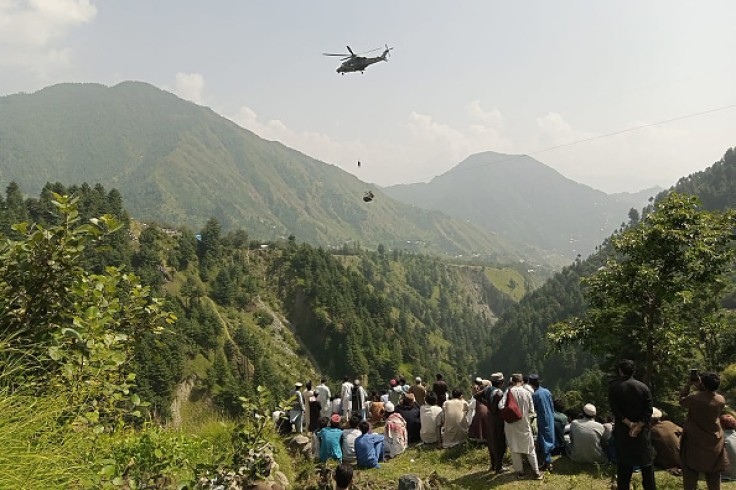Traveling through cable cars can be frightening, especially since most of the time, you will be hundreds of feet above ground. Eight people had the scare of their lives as cables that held the car snapped, and waited 14 long hours before they were rescued.

The 14-Hour Rescue
Eight passengers, which included six children were stranded in the cable car located in a valley in Pakistan. The incident took place after one of the cables that held the gondola snapped, officials said, which left them suspended 900 feet above the ground.
Rescuers were dispatched to the location to get the passengers out of the precarious situation through helicopters and zip lines. Unfortunately, the efforts became too dangerous as night fell, and the rescuers were forced to halt their efforts, prolonging the time that the children spent in the gondola.
In one of the videos that showed the rescue operations, the emergency workers used ropes to reel in a person attacked to a platform by a harness, as reported by CNN. Due to the stressful circumstances, two of the passengers had been fainting from time to time.
There were reports of the children vomiting, with one of them even having a heart-related condition. There had been early attempts to save the children, but the rescuers were met with strong winds, making operations more dangerous.
Although the cables snapped around 8:30 a.m., it wasn't until the afternoon that an army helicopter was sent to the site after the families of the affected urgently pleaded for assistance. It was then that the aircraft delivered supplies like food and medication to the gondola.
While a helicopter rescue is the first response that came to mind, it has been proven to be dangerous. The winds from the rotor caused the car to shake heavily, which risked the passengers even more.
The mayor of the Allai borough where the incident took place, Mufti Ghulamullah said that it made the rescue more difficult and that each attempt to bring the aircraft closer would jolt and unsettle the chairlift, which caused the children to cry out in fear.
Why Were They on the Cable Car?
The passengers were trying to travel to school in the province of Khyber Pakhtunkhwa, between the villages of Btangi and Jhengarie. This was one of the more convenient ways for children who live in the remote mountainous parts to travel to school.
The cable was stretched across the Allai Valley, and it was an alternative to climbing steep slopes where it could take hours to cover a few miles, as mentioned by The New York Times. It provided transportation for remote villages like Pashto.
According to reports, the mentioned village is home to around 30,000 people and is located on top of a hillside above Allai Valley. It is one of the poorest districts in that area of Pakistan and is far from fundamentals like education, healthcare, and other essential elements.
The nearest high school is four miles from the district, while the nearest hospital was as far as 90 miles. The journey was so difficult and long that in many cases, women in labor gave birth on the way and sick people died before they reach the hospital, local religious leader Maulana Qasim Mehmood said.









